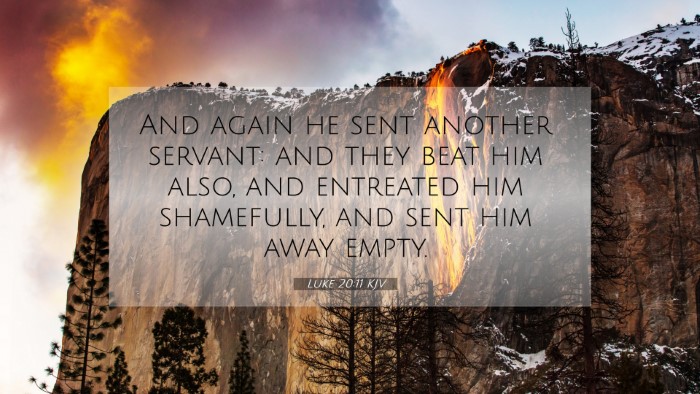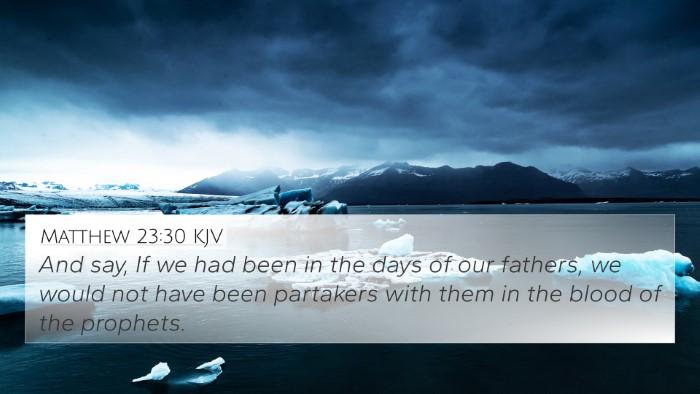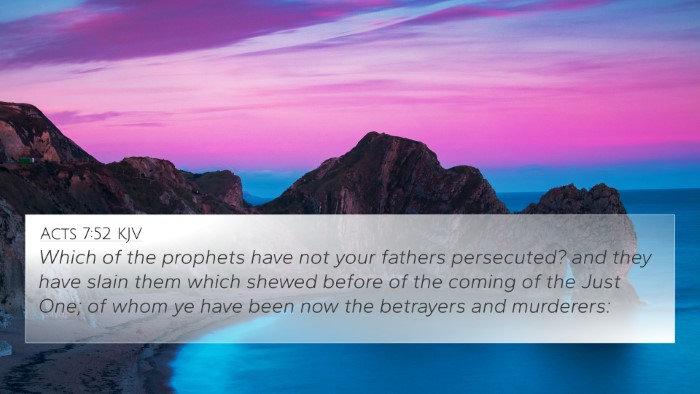Bible Verse Interpretation: Luke 20:11
Verse: "And again he sent a third: and they wounded him also, and cast him out." (Luke 20:11)
This verse is part of the Parable of the Wicked Tenants, which illustrates the way Israel treated the prophets sent by God. It serves as a strong reminder of the invitation to repentance and the subsequent rejection that leads to dire consequences.
Contextual Analysis
The parable instructs the listeners, notably the Pharisees, about the rejection of God's messengers. Matthew Henry remarks on the relentless nature of God's efforts to reach out to His people despite persistent rejection.
Significance of the Third Servant
The sending of multiple servants denotes God's patience and mercy. Adam Clarke explains that the progression in the sending of servants illustrates God's escalating response to disobedience. Each servant represents a prophet who brought a message from God, and the cruel treatment reflects Israel's history.
Comparison with Other Scriptures
Thematic connections to this verse can be found in:
- Matthew 21:35: Similar account of servants being beaten and ill-treated.
- Hebrews 11:36-38: Reflects the suffering of prophets and those who were faithful to God.
- 1 Peter 2:4-8: Describes Jesus as the cornerstone rejected by builders, highlighting the theme of rejection.
- Isaiah 5:1-7: The song of the vineyard emphasizes God's expectations from His people.
- Mark 12:5: Another retelling of the parable indicating the stubbornness of the tenants.
- Jeremiah 7:25: God’s calls to repentance through prophets ignored for generations.
- Acts 7:52-53: Stephen's speech about the prophets being killed by the unfaithful members of society.
Lessons Learned from Luke 20:11
This verse ultimately signifies the following lessons:
- The Persistence of God's Love: God continues to send messages of repentance and grace despite our transgressions.
- Human Rejection of Divine Truth: The verse highlights the human tendency to reject God’s messages.
- Consequences of Disobedience: Rejection of God leads to serious repercussions, foreshadowing Christ's own fate.
Additional Commentary Insights
Albert Barnes emphasizes the deep sorrow God feels over the rejection of His messengers, showcasing that God's heart is towards His people, seeking reconciliation even amid their stubbornness.
This rejection ultimately culminates in the crucifixion of Jesus, linking to the entire New Testament narrative about the fulfillment of God’s redemptive plan through suffering and sacrifice.
Cross-Referencing Tools and Methods
For those interested in exploring these themes further, the following tools can assist in Bible study:
- Bible Concordance: A valuable resource for finding related verses and themes.
- Bible Cross-Reference Guide: Helps to track connections between different Biblical texts for deeper understanding.
- Bible Chain References: A method of linking verses to create a comprehensive study of themes.
Conclusion
Luke 20:11 serves not just as a historical account but as a deeper reflection on God’s grace, the human heart's rebellion, and the ultimate calling for repentance. By recognizing connections with other scriptural texts, one can find a richer understanding of the Gospel’s teachings.
Related Bible Verse Cross-References
Some useful Bible cross-references for Luke 20:11 include:
- Matthew 21:35
- 1 Peter 2:4-8
- Acts 7:52-53
- Hebrews 11:36-38
- Isaiah 5:1-7
- Mark 12:5
- Jeremiah 7:25
Exploring Bible Verse Connections
Understanding the connections and thematic parallels in the scripture allows for a greater grasp of God’s message and purpose throughout Biblical history.







